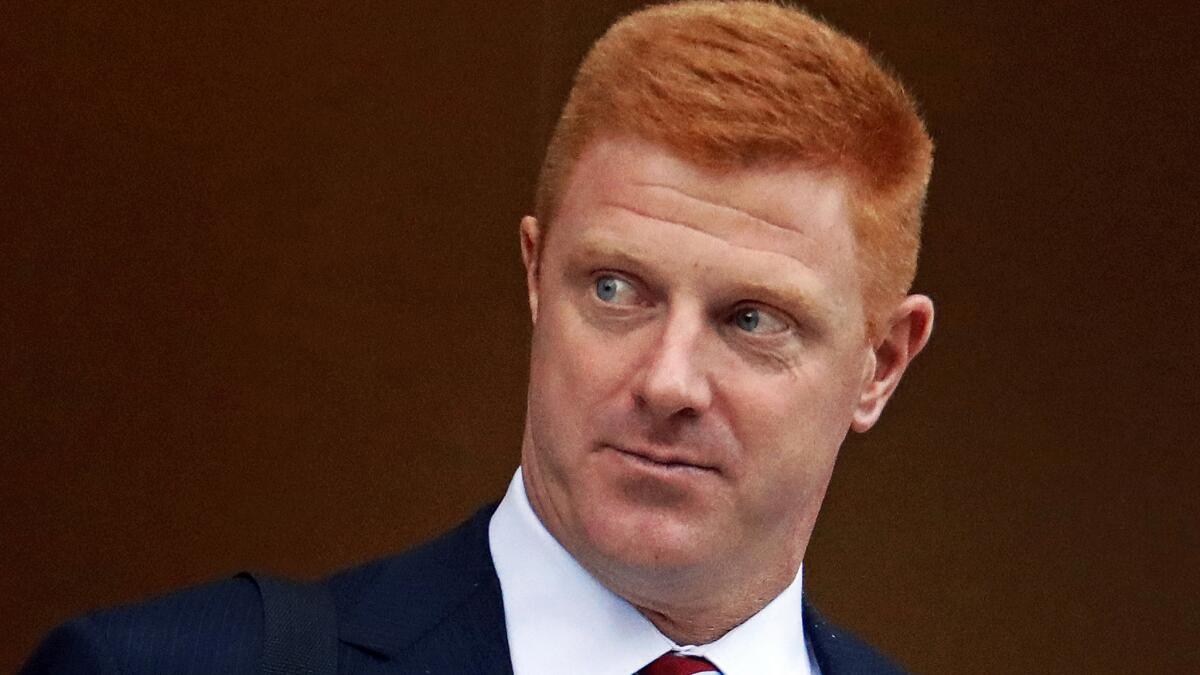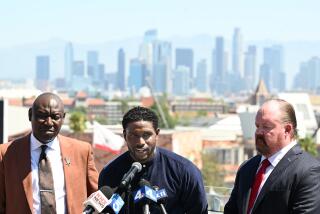Penn State University seeks reversal of Mike McQueary lawsuit verdict

Reporting from HARRISBURG, Pa. — Penn State is fighting back against a verdict that awarded one of its former assistant football coaches millions of dollars for his treatment after Jerry Sandusky’s arrest on child molestation charges.
The university said in a brief dated Monday that the verdict in favor of Mike McQueary should be reversed, a new trial should be ordered or the damages should be lowered.
The school said Judge Thomas Gavin gave jurors an incorrect instruction regarding who must report cases of child abuse, and that he acted as a “biased advocate” for McQueary during the October trial.
“Multiple instances exist where the court acted as an advocate on behalf of McQueary,” university lawyers wrote, citing the jury instruction as well as Gavin’s questioning of witnesses in front of the jury.
They say Gavin acted on his own, without prompting from the litigants, when telling jurors that three former administrators were considered mandatory reporters of suspected abuse.
“The court’s instruction was akin to taking the case out of the jury’s hands and directing a verdict in favor of McQueary,” Penn State’s lawyers argued.
Former president Graham Spanier, former vice president Gary Schultz and former athletic director Tim Curley were facing charges of failing to report abuse for their handling of McQueary’s complaint, but the trial judge in their pending criminal case threw out those charges last week. He ruled time had expired under the statute of limitations.
The three still are scheduled to go to trial next month on charges of endangering the welfare of children.
McQueary was awarded more than $12 million for defamation, misrepresentation and violations of whistleblower protections.
The defamation claim hinged on a statement Spanier and the school issued shortly after Schultz and Curley were arrested, along with Sandusky, in November 2011. McQueary argued his own statements to police and the grand jury were made to look like lies when Spanier asserted he was confident the charges the two other administrators then faced were groundless.
The school said it was not liable for what it called “defamation by innuendo.”
“This is not a defamatory statement, but an opinion that Spanier’s long experience with these officials led him to believe that they conducted themselves properly,” the university’s lawyers wrote.
They also argued Gavin should have delayed the civil trial so they could obtain statements and testimony from Curley and Schultz. As criminal defendants awaiting trial, they asserted their right against self-incrimination. Spanier did testify at the McQueary civil trial.
The brief concerns the defamation and misrepresentation claims the jury decided. Penn State says it will later outline its challenge of the whistleblower verdict, which Gavin issued. Sandusky is appealing a 45-count verdict after a 2012 trial. He is serving a 30- to 60-year prison sentence for sexual abuse of 10 boys.
More to Read
Go beyond the scoreboard
Get the latest on L.A.'s teams in the daily Sports Report newsletter.
You may occasionally receive promotional content from the Los Angeles Times.










